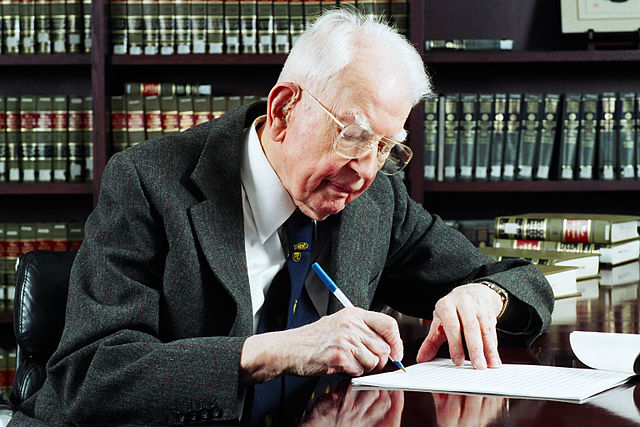Why was Ronald Coase Awarded the Nobel Prize for Economics in 1991?
Ronald Coase: A Nobel Laureate in Economics for his Revolutionary Insights
In 1991, the Nobel Prize in Economic Sciences was awarded to the British economist Ronald Coase for his seminal contributions to the field of economics. Coase’s groundbreaking research and innovative ideas have had a profound impact on the understanding of transaction costs, property rights, and the functioning of markets.

1. The Coase Theorem
Ronald Coase’s most celebrated work is the Coase Theorem, first presented in his seminal paper “The Problem of Social Cost” published in 1960. This theorem has become one of the cornerstones of modern economic theory. The Coase Theorem addresses the problem of externalities, which occur when the actions of one party impose costs or benefits on others who are not involved in the initial transaction.
Coase argued that in the absence of transaction costs, parties can negotiate and bargain efficiently to reach an economically optimal outcome, regardless of how property rights are initially assigned. The Coase Theorem challenged conventional wisdom at the time and provided economists with a new perspective on externalities and the role of government intervention.
2. Transaction Costs and the Firm
Another significant contribution by Coase was his analysis of transaction costs and their impact on the organization of economic activity. In his seminal paper “The Nature of the Firm” published in 1937, Coase explored why firms exist and why certain economic activities are conducted within firms rather than in the open market.
He contended that firms emerge as a response to transaction costs, which include the costs of searching for trading partners, negotiating contracts, and enforcing agreements. According to Coase, if the transaction costs are high, firms become a more efficient means of organizing production and coordinating economic activities. This insight laid the foundation for the field of transaction cost economics and greatly influenced subsequent research on organizational behavior and industrial organization.
3. Property Rights and the Tragedy of the Commons
In his 1960 paper, Coase also touched upon the issue of property rights and their role in addressing the “Tragedy of the Commons.” The Tragedy of the Commons refers to a situation where common resources are overused and depleted due to the lack of clearly defined and enforceable property rights.
Coase’s analysis highlighted the importance of well-defined property rights in efficiently allocating resources and preventing the Tragedy of the Commons. He demonstrated that property rights, when well-defined and transferable, can enable efficient resource allocation through voluntary exchanges and minimize the problems associated with common property resources.
4. Impact on Economic Policy and Beyond
Ronald Coase’s groundbreaking research has not only enriched economic theory but also influenced policy-making and various fields beyond economics. His emphasis on the role of transaction costs and property rights has led to a reevaluation of the government’s role in the economy.
Coase’s work has highlighted the potential drawbacks of government intervention in certain situations and stressed the importance of considering the costs and benefits of such interventions. This insight has had a significant impact on regulatory economics, environmental policy, and the design of institutions governing public goods.
Ronald Coase’s contributions to the field of economics have been nothing short of revolutionary. His ideas on transaction costs, property rights, and the Coase Theorem have transformed the way economists understand the functioning of markets and the role of institutions in shaping economic outcomes.
The Nobel Prize awarded to Ronald Coase in 1991 was a testament to the profound impact of his research on economics and its applications in various disciplines. His work continues to inspire researchers and policymakers, ensuring that his intellectual legacy endures and remains relevant in tackling complex economic challenges.




